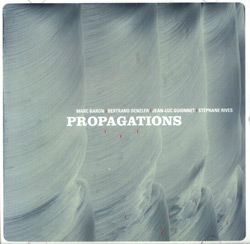
Four reed players of the European improv community in a series of compositions exploring drones, flutters, grainy tones, and powerfully radical approaches to the sax.
Out of Stock
Quantity in Basket: None
Log In to use our Wish List
Shipping Weight: 5.00 units
Sample The Album:
Marc Baron-alto saxophone
Bertrand Denzler-tenor saxophone
Jean-Luc Guionnet-alto saxophone
Stephane Rives-soprano saxophone
Click an artist name above to see in-stock items for that artist.
UPC: 3491570000526
Label: Potlatch
Catalog ID: P107
Squidco Product Code: 8703
Format: CD
Condition: New
Released: 2007
Country: France
Packaging: Jewel tray, not sealed.
Recorded on January 12, 2007 by Pierre-Henri Thiebaut.
"I suppose one of the more daring things you can do nowadays is to form a saxophone quartet. Do you deal with the weight of history inherent in your horn or try to shrug it off? Or do you simply see what four saxophonists with a thorough understanding of what has transpired in the last decade or so of contemporary improvisation can do these days?
It sounds like the latter was the approach here. There's no indication of how the pieces were put together, though it sounds as if at least the basic attack was agreed upon beforehand (if not, all the more impressive). But whatever the case, it by and large works. The musicians (Marc Baron, alto; Bertrand Denzler, tenor; Jean-Luc Guionnet, alto; Stephane Rives, soprano) concoct three works ranging between about ten and seventeen minutes in length, allowing the ideas plenty of time to flourish. The first limns territory that one might have expected coming in: soft, grainy and generally high-pitched, long tones edged with spittle. That it's not so surprising doesn't at all mean it's in any way unenjoyable and this one is fine, very delicate in its balance of tones and the succession in and out of the sound field. The first portion of second track gives me a bit of a problem, essentially because a large proportion of the sounds are key pops and other plosives, elements that carry a wee bit too much of that baggage from prior generations of free reedists. Still, the mini-explosions are arrayed with care over fainter flutterings and breaths and when it splays out into its last half, the saxophones coming to resemble nothing so much as a wheezing harmonium, it's rather nice.
But the payoff is the final piece. Here, after several minutes of sour, whistling squeakiness, the quartet summons forth all the inherent richness in their axes; the harmonium is cast aside and the pipe organ appears and raises the roof. Massive slabs of pure reeditude-we're still talking drones, no screaming and screeching, just hugeness. The effect is liberating. Not so much in a cathartic manner as found in the finest of free jazz squalls, but more in the sense of a recognition that this capability, too, is in the saxophone and it's been too often ignored in recent years. Diving into their lower registers, the metal begins to vibrate and thrum. They split back out into various pitch levels, one (Denzler, I would guess), maintaining the stuttering bottom, perhaps Rives scratching the ceiling. It's a beautifully full performance, excellently structured. Good to hear that a format one might have guessed to be played out, isn't."-Brian Olewnick, Bagatellen

The Squid's Ear!
Get additional information at Bagatellen
Artist Biographies
• Show Bio for Marc Baron "Marc Baron, Born in 1981 in France. Lives and composes music in Paris.
Since 2008, Marc Baron composes music for loudspeakers using tapes and analog processes. This work takes the shape of acousmatics concerts, radio broadcast, records, installations or specific live performances. Some of his compositions and performances were played in Australia, France, Switzerland, Belgium, Scotland, Canada. Some solo albums were edited during the last decade : in 2010 and 2012 on the English and Malaysiens labels Cathnor Records and Theme Park ("∩" and " Une fois, chaque fois ", in 2014 on the French label Potlatch ("Hidden Tapes"), in 2015 on Glistening Examples (" Carnets ") and in 2016 (" Un salon au fond d'un lac ")." ^ Hide Bio for Marc Baron • Show Bio for Bertrand Denzler ^ Hide Bio for Bertrand Denzler • Show Bio for Jean-Luc Guionnet "Jean-Luc Guionnet is an elusive figure. A Parisian artist active in many fields (music, visual arts, cinema), he has mostly worked in electro-acoustics but also has a career in free improvisation, playing alto saxophone, soprano saxophone, church organ, and piano. He has collaborated with Éric La Casa, Éric Cordier, and André Almuro on tape music. His main free improv and jazz projects include Hubbub, Schams, Return of the New Thing, and the Joe Rosenberg quintet. Guionnet made scientific studies before shifting to fine arts. He studied musique concrete under Iannis Xenakis and Michel Zbar, but also pursued studies in philosophy (esthetics) with Geneviève Clancy. His first works date from the late '80s and are mostly collaborations with filmmaker André Almuro (some have been issued by Ground Fault). Then came a lasting partnership with electro-acousticians Éric Cordier and Éric La Casa. Together they wrote the series "Afflux." Guionnet also produces the Ateliers de Création Radiophoniques ("creative radio workshops") for France Culture. His eclecticism has kept him at bay of recognition -- because to the eye of the press it strips him from some credibility and because running careers in philosophy (he was co-director for the review Terre des Signes from 1993 to 1996), painting (he exhibited from 1992 to 1997), and music simultaneously tends to be time-consuming. The release of an eponymous CD by Dan Warburton's free jazz quartet Return of the New Thing in 1999 on the respected label Leo Records introduced Guionnet to a wider audience. Since then his activities as an improviser have constantly stretched toward the fringes of experimentalism. His participation in the French-Swiss group Hubbub and his duo with guitarist Olivier Benoit (&Un, 2002) follow the school of Berlin reductionism." ^ Hide Bio for Jean-Luc Guionnet • Show Bio for Stephane Rives "Stéphane Rives is part of the current of an improvisation of materials and textures more than games and themes. More trivially, a fucking sound that torments the eardrum and drives the hammers into a panic, opening up gulfs in the understanding. Double simultaneous sounds, high pitch in the splendid isolation of the peaks and breath close to asthma, close to sinewave and the wind which passes in force under the door. The result is a strange almost disturbing abstraction, so much we no longer hear a saxophone but something quite different, without being able to name this something else. Do not believe that there is a feat here, that in the end it would only be due to technique, to a power of dissimulation, that would be little in the eyes of music. In the granulations, we reach such a decomposition of what constitutes music for academies, that we are literally stunned, pierced by this sonic twist, a metal sander applied to the human ear, revolving sounds tearing shavings from our cultural foundations, uncertainty of what and how."-Michel Henritzi - Review & Corrected ^ Hide Bio for Stephane Rives
11/20/2024
Have a better biography or biography source? Please Contact Us so that we can update this biography.
11/20/2024
Have a better biography or biography source? Please Contact Us so that we can update this biography.
11/20/2024
Have a better biography or biography source? Please Contact Us so that we can update this biography.
11/20/2024
Have a better biography or biography source? Please Contact Us so that we can update this biography.
Track Listing:
1. Part 1 9:54
2. Part 2 13:54
3. Part 3 17:21
The music is continuos; time codes have been added for listening reference only.
Improvised Music
European Improvisation, Composition and Experimental Forms
November 2007
Free Improvisation
Quartet Recordings
Search for other titles on the label:
Potlatch.



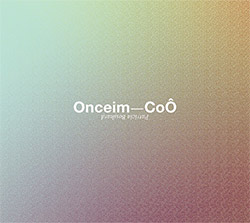
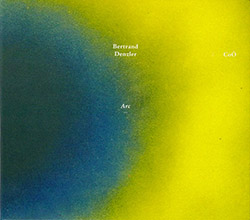

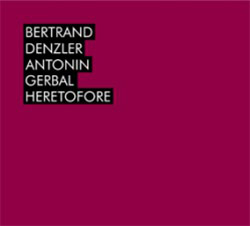
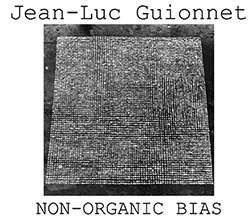
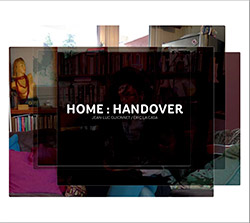


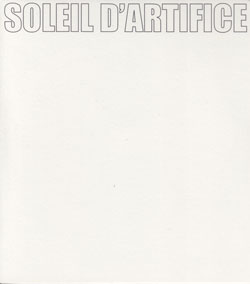


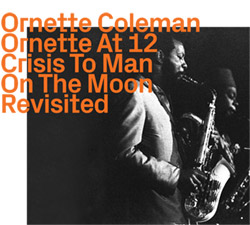
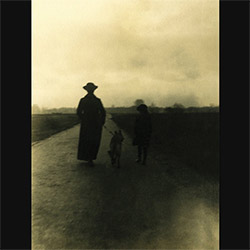

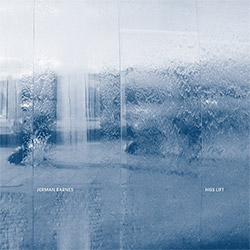
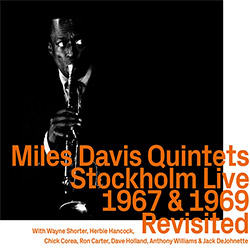

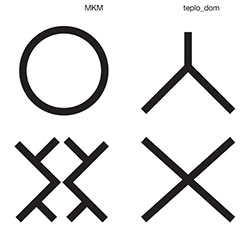


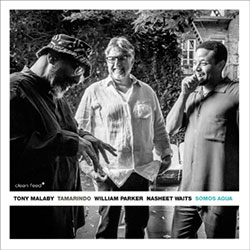





![Guy, Barry / Ken Vandermark: Occasional Poems [2 CDs]](https://www.teuthida.com/productImages/misc4/34849.jpg)
![Novoa / Carter / Mela Trio: Vol.1 [VINYL]](https://www.teuthida.com/productImages/misc4/35236.jpg)


![Elephant9 : Mythical River [VINYL]](https://www.teuthida.com/productImages/misc4/34624.jpg)
![Evans, Peter (Evans / Eldh / Black): Extra [VINYL]](https://www.teuthida.com/productImages/misc4/35279.jpg)

![McPhee, Joe: Straight Up, Without Wings [BOOK]](https://www.teuthida.com/productImages/misc4/35454.jpg)
![Jeck, Philip: rpm [2 CDs]](https://www.teuthida.com/productImages/misc4/35455.jpg)













![Barker / Parker / Irabagon: Bakunawa [VINYL]](https://www.teuthida.com/productImages/misc4/35533.jpg)
![Blaser, Samuel / Marc Ducret / Peter Bruun: Dark Was The Night, Cold Was The Ground [VINYL 10-inch]](https://www.teuthida.com/productImages/misc4/35492.jpg)








![Warren, Kenny (Warren / Hoffman / Ellman): Sweet World [VINYL]](https://www.teuthida.com/productImages/misc4/35451.jpg)




![Blake, Ran / Dave Knife Fabris: Live Amsterdam 2006, First Visit [CD + POSTCARDS]](https://www.teuthida.com/productImages/misc4/35275.jpg)













![DNS: Taking Big Bites Of The Khandas Three Cafes Deep [2 CDs]](https://www.teuthida.com/productImages/misc4/35334.jpg)




![Cleaver, Gerald: The Process [VINYL]](https://www.teuthida.com/productImages/misc4/34966.jpg)




![Alva Noto: HYbr:ID II [VINYL 2 LPs]](https://www.teuthida.com/productImages/misc4/35201.jpg)

![Baron, Derek / Luke Martin: Distinct and Concealed [CASSETTE + DOWNLOAD]](https://www.teuthida.com/productImages/misc4/35079.jpg)

![Lyle, Erica Dawn : Colonial Motels [CASSETTE + DOWNLOAD]](https://www.teuthida.com/productImages/misc4/35080.jpg)









![Sanna, Claudio: Compositori Sardi Contemporanei II [2 CDs]](https://www.teuthida.com/productImages/misc4/35317.jpg)







![Zurria, Manuel: Fame di Vento [3 CDs]](https://www.teuthida.com/productImages/misc4/35167.jpg)

![Granberg, Magnus / Nattens Inbrott / Skogen: Holde Traume, Kehret Wieder! [2 CDs]](https://www.teuthida.com/productImages/misc4/35038.jpg)
![Frey, Jurg: Outermost Melodie [2 CDs]](https://www.teuthida.com/productImages/misc4/35039.jpg)

![Pavone, Jessica: Reverse Bloom [VINYL]](https://www.teuthida.com/productImages/misc4/34895.jpg)




![Modney (Modney / Wooley / Gentile / Roberts / Pluta / Symthe / ...): Ascending Primes [2 CDs]](https://www.teuthida.com/productImages/misc4/34852.jpg)









![Elephant9 with Terje Rypdal: Catching Fire [VINYL 2 LPs]](https://www.teuthida.com/productImages/misc4/35355.jpg)
![Deerlady (Obomsawin, Mali / Magdalena Abrego): Greatest Hits [VINYL]](https://www.teuthida.com/productImages/misc4/34876.jpg)




![Haino, Keiji: Black Blues [2 CDs]](https://www.teuthida.com/productImages/misc4/35109.jpg)



![Surplus 1980: Illusion of Consistency [CD]](https://www.teuthida.com/productImages/misc4/35069.jpg)
![Staiano, Moe: Away Towards the Light [VINYL + DOWNLOAD]](https://www.teuthida.com/productImages/misc4/35037.jpg)



![Caveira (Gomes / Sousa / Abras / Ferrandini): Ficar Vivo [VINYL]](https://www.teuthida.com/productImages/misc4/34643.jpg)
![Gregg, J. J. / David Van Auken: Lunar Prairie [CD w/ DOWNLOAD]](https://www.teuthida.com/productImages/misc4/34611.jpg)

![Coultrain: Mundus [VINYL]](https://www.teuthida.com/productImages/misc4/32439.jpg)
![Mattin: Songbook #6 [VINYL]](https://www.teuthida.com/productImages/misc4/27317.jpg)
![Punkappella: Wake Up [7-inch VINYL]](https://www.teuthida.com/productImages/misc4/17519.jpg)
![Residents, The: WARNING: UNiNC.: Live And Experimental Recordings 1971-1972 [VINYL 2 LPs]](https://www.teuthida.com/productImages/misc4/31521.jpg)
![Coultrain: Phantasmagoria [VINYL]](https://www.teuthida.com/productImages/misc4/30142.jpg)
![Lennon, Sean Ono: Asterisms [VINYL]](https://www.teuthida.com/productImages/misc4/34517.jpg)

![Coley, Byron: Dating Tips for Touring Bands [VINYL]](https://www.teuthida.com/productImages/misc4/17906.jpg)

![Lost Kisses: My Life is Sad & Funny [DVD]](https://www.teuthida.com/productImages/misc4/lostKissesDVD.jpg)